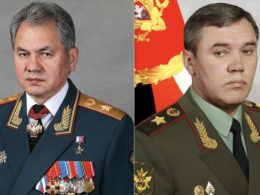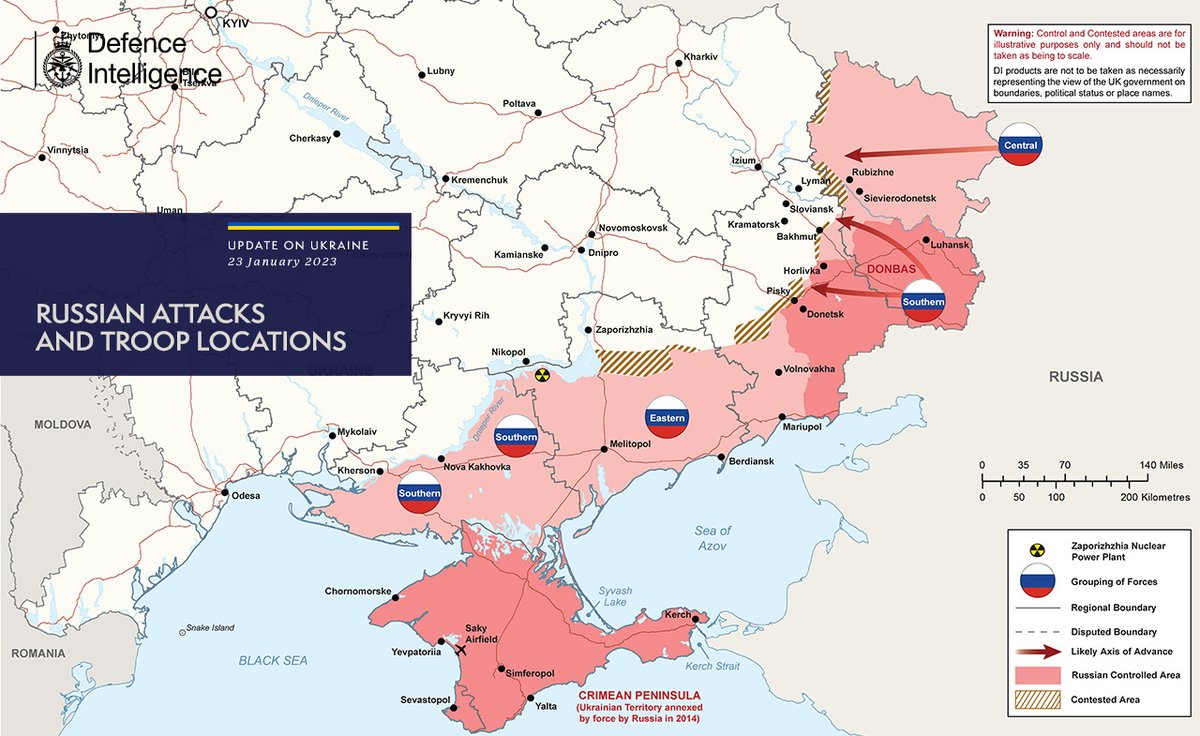Wagner Group financier Yevgeny Prigozhin and Chechen leader Ramzan Kadyrov may have compelled the Russian theater commander in Ukraine, Army General Valery Gerasimov, to resume artillery ammunition distribution to the Wagner forces in Bakhmut despite Gerasimov’s desired de-prioritization of that effort. This assessment assumes that Prigozhin’s claims that the MoD was withholding shells but has now agreed to supply them are true—the MoD has made no official statements regarding those claims—and Ukrainian officials report that they have not observed a decline in Wagner shelling during this period. Kadyrov’s threats to transfer his forces to Bakhmut may have blackmailed the Russian military command into allocating ammunition to Wagner mercenaries. Kadyrov likely supported Wagner’s blackmail efforts against the Russian military command in order to reestablish his position within the circle of power in the Kremlin.
Gerasimov’s apparent need to negotiate with subordinate commanders and those commanders’ ability to force his hand suggests that chain of command problems are having a significant impact on the Russian military’s ability to conduct coherent theater-wide operations.
The position of overall theater commander should, in principle, allow Gerasimov to command any Russian unit or ground forces commander in Ukraine, even those in charge of irregular formations such as Wagner and Akhmat. Prigozhin and Kadyrov appear to be able to largely make independent decisions concerning their forces, however, a phenomenon that appears to have become more pronounced the longer these forces have had de facto control over certain sectors of the frontline. Wagner and the Russian MoD appeared to have recently agreed to delineate responsibilities between conventional and irregular forces. The Russian military command deployed Russian Airborne Forces (VDV) to defend the flanks around Bakhmut when Wagner began advancing in the city, for example.
ISW previously assessed that the Russian military command had likely recently decided to reprioritize efforts and resource allocation to prepare to receive potential Ukrainian counteroffensive operations but did not set conditions to appease Prigozhin or offset Wagner’s likely degradation in the Bakhmut area.
The subsequent upheaval over the de-prioritization of Bakhmut and the Russian military command’s reversal on supplying Wagner is likely to undermine this theater-wide effort.
These events raise questions about Russia’s ability to coordinate a coherent theater-wide defensive campaign.
The Russian military command appears to be increasingly delegating responsibilities for different sectors of the front in Ukraine to various Russian commanders while the power of the theater commander continues to wane. Gerasimov’s degraded abilities to control his commanders will likely further limit the Russian military’s ability to conduct coherent operations involving different areas of responsibility.
ISW has previously assessed that factional dynamics within the Russian military are shaping decision-making to an unusual degree, and the increasing erosion of the Russian chain of command is likely caught in a self-reinforcing feedback loop with the Russian military’s growing factionalism.
ISW assesses that Putin is unlikely to remove Gerasimov as overall theater commander for reputational reasons, and therefore Prigozhin’s and Kadyrov’s public undermining of Gerasimov may have lasting impacts on the power of the overall theater commander’s position. Putin may seek to reward commanders he favors with responsibility beyond their official positions instead of outright appointing them to higher positions. The Russian military is highly unlikely to solve these chain of command issues in the near term, and these problems will likely influence how Russian forces on different axes respond to potential Ukrainian counteroffensive operations.







